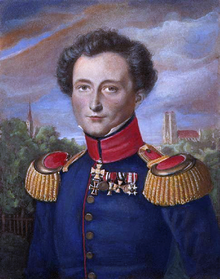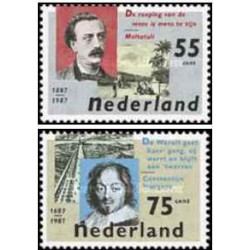- جدید
- ناموجود



توجه : درج کد پستی و شماره تلفن همراه و ثابت جهت ارسال مرسوله الزامیست .
توجه:حداقل ارزش بسته سفارش شده بدون هزینه پستی می بایست 180000 ریال باشد .
توجه : جهت برخورداری از مزایای در نظر گرفته شده برای مشتریان لطفا ثبت نام نمائید.
| Carl Philipp Gottfried von Clausewitz | |
|---|---|

Portrait while in Prussian service, by Karl Wilhelm Wach
|
|
| Born | 1 June 1780 Burg bei Magdeburg, Prussia (now Germany) |
| Died | 16 November 1831 (aged 51) Breslau, Prussia (now Wrocław, Poland) |
| Allegiance | |
| Service/branch | Prussian Cavalry Officer Army |
| Years of service | 1792–1831 |
| Rank | Major-General |
| Unit | Russian-German Legion (III Corps) |
| Commands held | Kriegsakademie |
| Battles/wars |
French Revolutionary Wars
Napoleonic Wars
|
Carl Philipp Gottfried (or Gottlieb) von Clausewitz[1] (/ˈklaʊzəvɪts/; 1 June 1780 – 16 November 1831)[2] was a Prussian general and military theorist who stressed the "moral" (meaning, in modern terms, psychological) and political aspects of war. His most notable work, Vom Kriege (On War), was unfinished at his death. Clausewitz was a realist in many different senses and, while in some respects a romantic, also drew heavily on the rationalist ideas of the European Enlightenment.
Clausewitz's thinking is often described as Hegelian because of his dialectical method; but, although he was probably personally acquainted with Hegel, there remains debate as to whether or not Clausewitz was in fact influenced by him.[3] He stressed the dialectical interaction of diverse factors, noting how unexpected developments unfolding under the "fog of war" (i.e., in the face of incomplete, dubious, and often completely erroneous information and high levels of fear, doubt, and excitement) call for rapid decisions by alert commanders. He saw history as a vital check on erudite abstractions that did not accord with experience. In contrast to the early work of Antoine-Henri Jomini, he argued that war could not be quantified or reduced to mapwork, geometry, and graphs. Clausewitz had many aphorisms, of which the most famous is "War is the continuation of politics by other means."[4]
تشکر نظر شما نمی تواند ارسال شود
گزارش کردن نظر
گزارش ارسال شد
گزارش شما نمی تواند ارسال شود
بررسی خود را بنویسید
نظر ارسال شد
نظر شما نمی تواند ارسال شود

check_circle
check_circle















